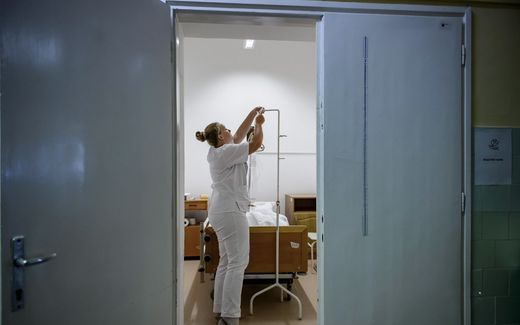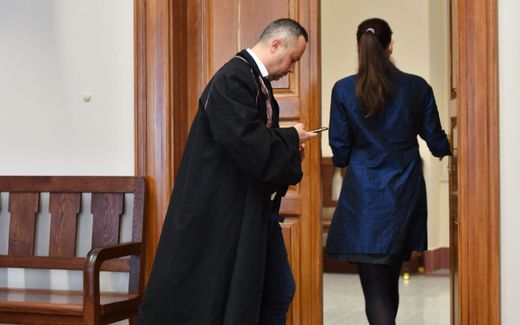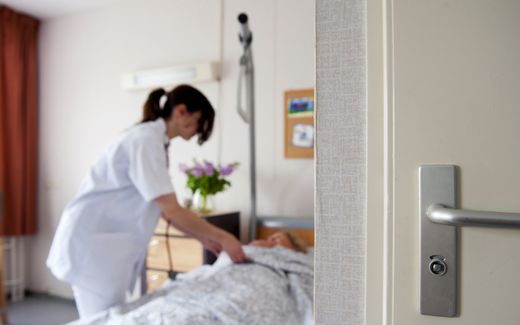Committeee French Senate adopts report against euthanasia law

A member of the French collective "Relieve but not kill" ("Soulager mais pas tuer" in French) holds a sign during a gathering to protest against the legalization of euthanasia or assisted suicide. Photo AFP, Philippe Lopez
Western Europe
The Committee of Social Affairs of the French Senate is clear in its judgment about a possible new euthanasia law in the country. For them, this is a no-go.
On Wednesday, the Committee adopted a report on the end of life. And it breaks down point by point the arguments of the supporters of euthanasia and assisted suicide, La Croix reports.
According to the new report, active assistance in dying is "an inappropriate and dangerous response to a diffuse and equivocal request." It asserts that the "collateral damage" that would come with legalising self-determined death would be greater than its benefits. The report also presents a wealth of data, scientific studies and the opinions of experts who were consulted in about 30 interviews.
Furthermore, the report criticises the relativity of the polls, which allegedly showed great support for a new end-of-life law. In addition, it emphasised the risks of "pressure from the most vulnerable" and the "threat of a commodification o chosen death."
Therefore, the Committee severely warns against the end-of-life bill which Minister Agnès Firmin Le Bodo must present before the end of summer.
Vital prognosis
Senator Corinne Imbert is afraid that the new bill will only be the beginning. "As soon as active assistance in dying is authorised for certain patients, the law will be extended to others, as can be seen in almost all countries which have legalised active assistance in dying", she pointed out.
The bill in progress, which Minister Agnès Firmen Le Bodo presented earlier, defines "a right to benefit from active assistance in dying." However, it leaves out the terms euthanasia and assisted suicide on purpose. Instead, it gives conditions in which this right to active assistance in dying is permitted: "The person must be of legal age, suffering from a serious and incurable condition which involves his vital prognosis in the medium term, and capable of discernment to exercise and autonomous choice."
Grégor Puppinck, jurist and director of the European Center for Law and Justice, shares Imbert's worry. He writes in an opinion article in Valeurs Actuelles that the bill "itself carries the seeds of drifts towards an extension of the right to chosen death."
Puppinck points out that the working bill seems to be designated based on "respect for individual autonomy." Consequently, he writes, "active assistance in dying is part of a logic of individual rights, which obliges society to justify each limitation placed on this right."
Care and support
Christine Bonfanti-Dossat, a conservative member of the Committee of Social Affairs, points out that it is important to raise more awareness concerning palliative care. "We must finally give ourselves the financial and human means to improve this French model based on the ethics of care and support, the basis of a society attentive to the most fragile", she says.
Michelle Meunier, another senator and rapporteur of the report, shares this opinion. She points out that it is necessary to give everyone equal access to palliative care.
Related Articles









